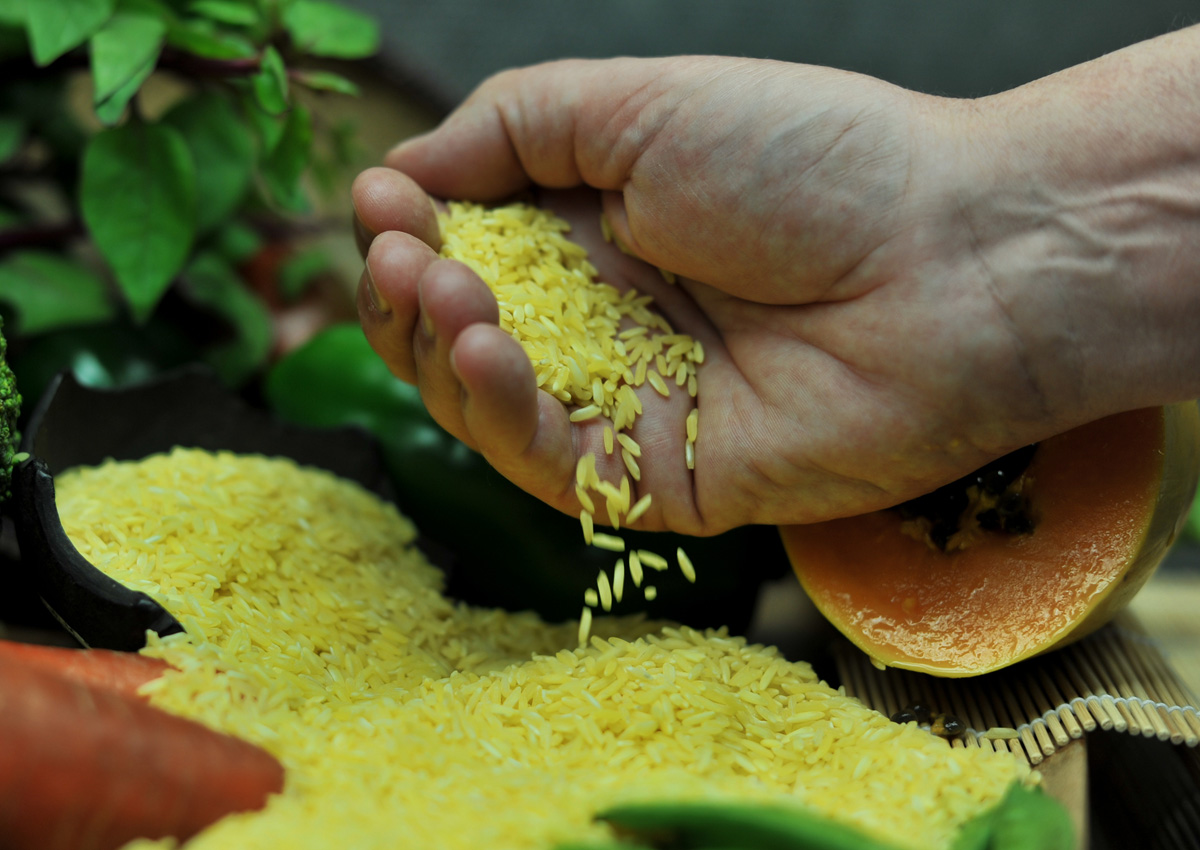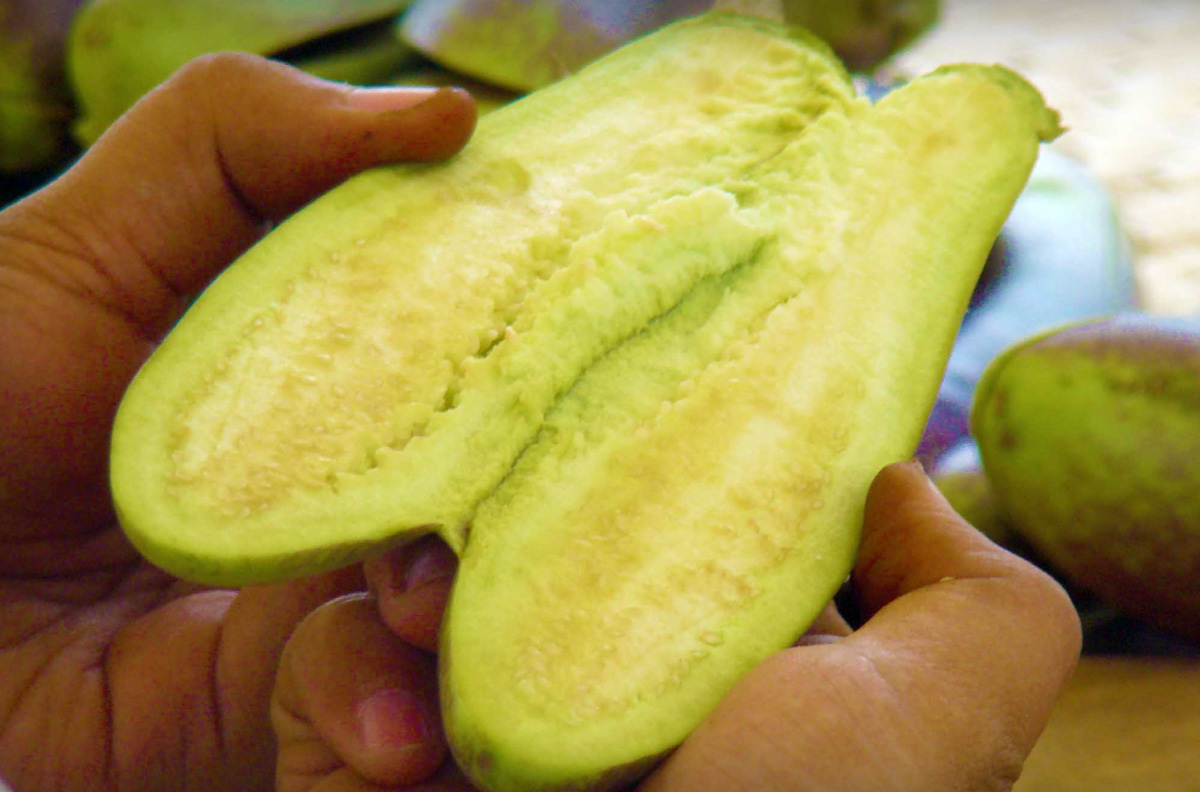Golden Rice and Bt Eggplant Battle Court Order in the Philippines
| |

In 2023, the Philippine population was estimated at 117,337,368 people, equivalent to 1.46% of the world population. By mid-year 2050, the Philippine Statistics Authority projects that this number will reach 157,891,622.
As the population continues to increase, the demand for food, clothing, and shelter also rises. However, as the population increases, food production is expected to decline, which could lead to shortages and limited supplies for many people.
In the past three decades, scientists have significantly contributed to finding solutions to ensure the global food supply. Scientists are one of the driving forces behind the development of genetically modified (GM) crops to improve food production. They have developed crops with beneficial traits like resistance to pests and diseases, crops that resist harsh environmental conditions such as drought and heat, and used genetic modification to enrich crops with vitamins and minerals.
In the Philippines, two GM crops that have been recently approved for commercial propagation are Golden Rice and Bt eggplant. Golden Rice is an example of how scientists have applied GM technology to enhance nutrition in food crops. Golden Rice, or Malusog Rice, is a variety of rice genetically engineered to produce beta-carotene, a precursor of vitamin A, in the grain, making it a potentially powerful tool to combat vitamin A deficiency, a major public health problem in many parts of the world, especially Southeast Asia where rice is a dietary staple.

Bt eggplant, on the other hand, is an example of GM crops with enhanced traits. Developed by the University of the Philippines Los Baños (UPLB), it is a variety of eggplant that has been modified to resist the eggplant fruit and shoot borer (EFSB), a major insect pest of eggplant in the Philippines, causing significant yield losses for farmers of up to 50-70%. Bt eggplant is projected to help reduce these losses and increase farmers' income with a 192% yield advantage.

Golden Rice and Bt eggplant face legal battle against biotech critics
The Philippine Supreme Court (SC), in its En Banc deliberations on April 18, 2023, issued a Resolution that granted a Writ of Kalikasan to stop the commercial release in the country of two genetically modified products, Golden Rice and Bt (Bacillus thuringiensis) eggplant. The Writ was petitioned by a group of individuals and organizations led by Magsasaka at Siyentipiko Para sa Pag-Unlad ng Agrikultura.
The April 2023 SC Resolution also required the respondents to file a verified return of the Writ of Kalikasan, to which the Secretaries of Agriculture (DA), Environment and Natural Resources (DENR), and Health (DOH), the Bureau of Plant Industry (BPI), UPLB, and the Philippine Rice Research Institute (PhilRice) complied with.
In a separate Resolution issued on June 13, 2023, the SC En Banc, resolved to refer the case to the Court of Appeals (CA) to hear, receive, and render judgment. The Petition was then referred to the Appellate Court on August 10, 2023. On April 17, 2024, the CA rendered its judgment on the petition, which grants the privilege of Writ of Kalikasan; issues a Writ of Continuing Mandamus against respondent government agencies; directs UPLB to cease and desist from commercially propagating and conducting Bt eggplant activities; revokes the Biosafety Permit for Commercial Propagation of Golden Rice; and orders PhilRice to cease and desist from commercially propagating and conducting Golden Rice activities.
The Decision also enjoins the commercial propagation and/or activities of Golden Rice and Bt eggplant until the respondent government agencies have submitted their respective proof of safety and compliance with all legal requirements and orders the respondents to perform their mandate by submitting to the Appellate Court the concrete mechanisms that will be adopted to monitor all activities conducted under the Joint Department Circular (JDC) and strengthen risk assessment procedures outlined in JDC No. 1-2021. Lastly, the CA Decision prohibits any applications for contained use, field testing, direct use for food, feed, processing, commercial propagation, or importation of GM products until compliance with the conditions is established.
What is the Writ of Kalikasan?
On April 13, 2010, the Philippine Supreme Court issued The Rules of Procedure for Environmental Cases (AM No. 09-6-8-SC). The Rules are set to govern the procedure in civil, criminal, and special civic actions involving the enforcement or violation of environmental laws such as the Revised Forestry Code, the Water Code, the Philippine Mining Act, the Clean Air Act, and the Clean Water Act.
One of the significant features of the Rules under Rule 7 is the unique and one-of-a-kind Writ of Kalikasan (kalikasan is the Filipino term for nature). The Rules define the writ as "a remedy available to a natural or juridical person, entity authorized by law, people’s organization, non-governmental organization, or any public interest group accredited by or registered with any government agency, on behalf of persons whose constitutional right to a balanced and healthful ecology is violated, or threatened with violation by an unlawful act or omission of a public official or employee, or private individual or entity, involving environmental damage of such magnitude as to prejudice the life, health or property of inhabitants in two or more cities or provinces."
A Writ of Kalikasan is a special civic action and legal remedy under Philippine law that protects one's constitutional right to a healthful environment, as outlined in Section 16, Article II (Declaration of Principles and State Policies) of the 1987 Philippine Constitution, which states that the "state shall protect and advance the right of the people to a balanced and healthful ecology in accord with the rhythm and harmony of nature."
To date, the Writ of Kalikasan has been issued against environmental protection and mining operations in the Philippines. Such cases include the 2023 Writ of Kalikasan against the DENR, the Mines and Geosciences Bureau, and Altai Philippines Mining Corporation, in response to a petition by residents seeking protection for the Sibuyan Island ecosystem and local livelihoods. In 2023, the Philippine Supreme Court also issued a Writ of Kalikasan against Celestial Nickel Mining and Exploration Corporation, Ipilan Nickel Corporation, and the DENR for mining operations on Mount Mantalingahan mountain range in Palawan.
The Writ of Kalikasan was issued against a crop for the first time in 2013, when the Court of Appeals upheld a court ruling banning field trials of Bt eggplant, and again in 2024 when the Appellate Court granted the Writ against the production and commercial activity of Bt eggplant and Golden Rice.
UPLB and PhilRice issue statements on the CA Ruling
The UPLB expressed respect for the CA Decision on Bt eggplant. In a statement released on April 27, 2024, UPLB emphasized that the CA's Decision did not revoke the UPLB's Biosafety Permit for Commercial Propagation of Bt eggplant, and stated that the University has consistently complied with all the prescribed government standards and protocols under the National Biosafety Framework of the Philippines and related guidelines in the development of Bt eggplant. Lastly, UPLB stressed that being the National University, UP is mandated to pursue innovations in science and technology, including using modern biotechnology to help the country attain its development goals in agriculture.
In a separate statement, PhilRice acknowledges the Appellate Court's Decision. PhilRice Executive Director Dr. John C. De Leon said that they “acknowledge the Court of Appeal’s Decision regarding the Writ of Kalikasan proceedings against Golden Rice.” He added that they are currently reviewing the implications to prepare their response to the CA Decision.
GM products receive support from academe, scientists, and media practitioners
In its statement released on April 25, 2024, the National Academy of Science and Technology (NAST) expressed support for the use of GM crops and views the CA Decision as a setback. They argue that Bt eggplant and Golden Rice are safe and effective technologies that can help improve farmer income and health by reducing reliance on pesticides and vitamin A deficiency. According to NAST, the CA Decision prioritizes ideology over scientific evidence, discourages innovation, and delays solutions to hunger and poverty.
Angelo B. Palmones, Chairperson of Science Communicators Philippines Inc. (SciCommPH), said "The precautionary principle must not be weaponized against research and development, most especially with regard to the country's food security. It is a sin to blindly allow the destruction of our environment with the wanton use of pesticides, in the guise of precaution."
The Coalition for Agriculture Modernization in the Philippines, Inc. (CAMP), whose members are men and women experts from agriculture, agribusiness, industry, and academe, calls the CA Decision the "war of attrition" the Filipinos should win. In a statement released on May 4, 2024, CAMP argues that the decision is a setback for Filipino farmers and consumers.
The CAMP and its members also criticize the Decision, saying that it relies on ideology rather than scientific evidence; prioritizes the concerns of a small group over the potential benefits to millions; misinterprets the concept of a "balanced and healthful ecology; sets an unrealistic standard for scientific consensus; and fails to acknowledge the existing regulatory system for GMOs. They call for the Decision to be appealed and for Filipinos to support the use of GM technology.
The Biotechnology Coalition of the Philippines (BCP) issued its statement on May 6, 2024. The statement says that the BCP respects the judicial process, but they advocate for a balanced, responsible, science-based approach to decision-making that fully considers the extensive scientific evidence and practical benefits these technologies offer. The BCP urges the Court of Appeals to reconsider its decision and to base its rulings on sound scientific evidence and risk assessments conducted by competent regulatory authorities. The BCP also calls upon the Philippine government to continue supporting and promoting the responsible development and adoption of agricultural biotechnology, including institutionalizing the current science-based regulatory framework, investing in research and development, and educating the public about the benefits and safety of these technologies.
GM crops to help feed the world’s future population
GM crops have been commercially propagated since 1996 when the six pioneer countries planted these crops. In 2019, 29 countries, including the Philippines, planted 190.4 million hectares of 15 biotech crops contributing significantly to food security, sustainability, climate change mitigation, and upliftment of the lives of up to 17 million biotech farmers and their families worldwide.
In recent years, gene editing, a more precise form of genetic modification, holds promise for contributing to the alleviation of poverty and hunger by increasing crop yields, improving the nutritional value of crops, and enhancing sustainability and economic benefits for farmers.
Safeguarding food security and nutrition is critical in overcoming hunger and malnutrition. Scientific research and development for agriculture play a critical role in ensuring a stable and nutritious global food supply for the Philippines and the world as more people demand more food. The debate on GM crops is complex, but carefully weighing their potential benefits and drawbacks, and implementing these technologies responsibly, will help contribute to a future where everyone has access to adequate and nutritious food.
For further reading:
- From Potential to Progress: Latest Developments in Golden Rice Deployment in the Philippines
- More than 100 Tons of Golden Rice Harvested in the Philippines
- Golden Rice Now Approved for Commercial Planting in the Philippines
- Philippines Approves Bt Eggplant for Commercial Cultivation
- Philippines Approves Bt Eggplant for Direct Use as Food, Feed, or for Processing
- Filipino Research Shows Environmental Impacts of Bt Eggplant
| Newer Post | Archive | Older Post |
Science Speaks is ISAAA Inc.'s official blog. Weekly blog articles, authored by ISAAA writers, partners, and invited contributors, aim to help share, disseminate, and promote scientific knowledge and its vital role in achieving global agricultural sustainability and development. Your support to Science Speaks will help us achieve this goal. You can help us by donating as little as $10.

